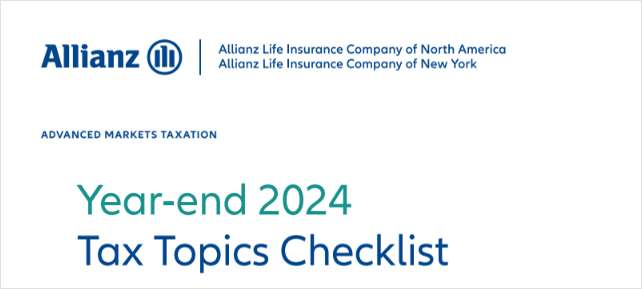Anyone who's had a Vanguard 401(k) account since the 2008 financial meltdown, stayed the course and continued to contribute to their account through last year saw their balances rise by 182%. Pretty good, right? Better yet, pretty much the same can be said for a lot of 401(k) accountholders, whether Vanguard, Fidelity and so on.
"The effects of the market decline on retirement savings are now firmly in the past," Jean Young, of Vanguard's Center for Retirement Research, said.
But what about future declines? Sure, the Dow Jones Industrial Average is flirting with the 17,000 mark. But there are plenty of smart investors waiting for the bottom to drop at any moment.
It is all just Internet noise? Could be. But there's no disputing that every bull market invariably comes to an end. Predicting when and why is not the job of 401(k) advisors. But that doesn't mean they don't get asked about the market, or that advisors don't share the concerns of their plan sponsor clients relative to market drops.
With all that in mind, our sister site BenefitsPro put the question of how advisors address their clients' concerns to five industry leaders.
The question: How are you preparing 401(k) clients for a potential turn in the bull market?
Here they are, in their own words:

Greg Patterson, CEO, The Advisory Group
Based in San Francisco, The Advisory Group is a fee-only firm with assets approaching $1 billion. The firm has been custom-designing mid-sized 401(k) plans for over two decades. Patterson broke into the industry in 1994, working as a consultant with Callan Associates before joining The Advisory Group.
Answer: The Advisory Group prepares clients and plan participants far in advance of market shifts. Client success is dependent upon the quality of our process and advice, but also the degree to which clients and their plan participants follow a proven process and demonstrate effective and disciplined investor behavior.
An array of behavioral finance studies indicate that emotional investing costs the average investor from 2%-5% of their balances per year over the last 20 years … and this is generally regardless of socioeconomic status or smarts. Simply stated, there is a global financial literacy problem, and people are busy and don't have time to become experts, so it is critical to have the right process and support.
As a result, key elements to our guidance as advisors to 401(k) plans in different market conditions revolves around avoiding pitfalls, include a) guiding fiduciaries regarding what works best to create retirement readiness while limiting fiduciary liability; b) building a set of investment options that reduces the likelihood of investor mistakes, and; c) improving participant investment and savings decisions through guidance tools initially, and providing ongoing education.
The investment component is addressed through pre-built custom risk-based (static asset allocation) portfolios or custom age-based (target date fund) options. This allows participants to keep things simple and effective by choosing just one professionally managed, highly-diversified, low-cost, best-of-breed portfolio, rather than having to become experts themselves.
The participant decision-quality component is accomplished through in-person and/or webinar education, focused on behavioral elements. We help plan participants understand that savings levels are paramount and that market shifts are uncomfortable but normal, and that the way they respond to markets often has a bigger impact on their wealth than the markets themselves. We address the basics of neuroscience and how fear can trigger a flight-or-fight response, which often leads to selling at the bottom. We also use Twitter and Facebook as way to educate and nudge people towards effective long-term investor behavior.

T. Henry Yoshida, founding principal, Maresh Yoshida 401(k) Group
Founded in July 2010, Austin, Texas-based Maresh Yoshida has $1.4 billion in assets under advisory, all of which are in 401(k) plans. Yoshida is quick to point out that the firm has never lost a client, and has added eight new relationships in the past two years. The 401(k) Wire selected Yoshida as a Top 10 DC advisor for the large-market segment, and a top 50 advisor in 2012.
Answer: We have rarely, if ever, been concerned with the stock market. Dimensional Fund Advisors states in their firm overview, "We see markets as an ally, not an adversary." This concept essentially drives everyone in our industry to do and say the things we do. The level of emphasis placed on the different markets and the method for gaining exposure to those markets varies by firm, but the underlying concept is the same across the board.
Admittedly, the extreme drops in broad markets may test our view that they are allies in the same way hitting a huge air pocket in a commercial airliner gives us momentary doubt that the plane will continue flying. But, like everyone else, we believe there is a long-term benefit to staying invested.
Our firm's concern has always been with plan participants, plan sponsors, and their behaviors. We worry most about participants maintaining proper asset allocations in context of their time horizons and their reactions during significant market events. This concern is the same in bull and bear markets.
Many players in our industry suffer from an identity crisis. They consistently communicate to participants the need to set an asset allocation and stick to it because market timing is a losing game while ignoring that guidance when making plan-wide decisions. Our goal is to help plan sponsors and, in turn, their plan participants make decisions in the context of markets as allies and market-timing as a losing game.
To meet this goal, we begin preparing our plan sponsor clients for market cycle changes when we first engage them. It's a long process. We need to remind them, and ourselves, that the only certainties in long-term retirement investing are short-term market shifts.






